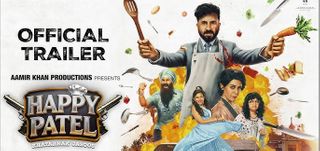
Dum Maaro Dum Movie Review
By the end of it all, only one love story comes to a happy ending in "Dum Maro Dum". Maybe one is not allowed to say which. What one can safely say without the risk of sounding like a spoilsport is that love is not a popular emotion in the world that Rohan Sippy's edgy thriller encompasses. If one loves in this hell-hole of pleasure then there's only a dead end to look forward to.
This film is certainly not a ride for the squeamish. Violence dominates the proceedings.
Ladies and Gentleman, welcome to the Other Goa. The one that we don't see in Hindi cinema. Unless we look really hard and come up with Pankaj Parasher's "Jalwa" 24 years ago. There too Goa became the scene of a watchable drug-busting drama.
In DMD the characters in Goa are constantly up to something self-destructive. You really can't afford to take your eyes off the screen as the lives of three unlikely 'heroes' -- one a redemptive cop, the other a student who sells his soul for a scholarship and the third a musician trapped in discordant notes -- converge in most unexpected ways. But then the 'unexpected' is only expected in a film that addresses the uneasy nexus between crime and conscience in hedonistic Goa, without taking sides.
DMD avoids getting judgemental. The writing, by Sridhar Raghavan, doesn't assume a position of moral superiority over Goa's inglorious crime syndicate. Probing into the anatomy of the global drug racket in Goa, the film sweeps us with a violent jolt into a world of doom and damnation where the innocent must perish and the incorrupt must suffer.
Abhishek Bachchan's cop's role as ACP Kamath acquires an interesting moral ambivalence. Yup, the celluloid cop has evolved from the seething simmering Bachchan persona in "Zanjeer" to the laconic almost-cynical and acutely suffering law enforcer in DMD who must make hard decisions not in the last reel but Reel Now.
The vehement violence and illicit wealth of the crime syndicate and the immediacy of its annihilation are brought into one jagged but unified line of vision. Often Rohan Sippy's direction seems to favour the craggy uneven route. But hey, that could just be Amit Roy's moody cinematography capturing the crowd sweat and greed of the Goan drug cartel.
Sippy displays a tremendous partiality for restless visuals. The characters are always on the move though their destination is a mystery even to themselves. Maybe their aspirations are over-run by their greed. The narrative never stops long enough to let us come near to the characters to feel the heat of their hurt. A breathy wheezing anarchy rules over the universe that Rohan Sippy's arching cinema embraces.
Some of the characters sneak in a warm regard for their individual space in unguarded moments of vulnerability. Abhishek Bachchan's mourning for his lost family runs through the film like an aching limb that cannot be amputated from the proceedings no matter how hard it tries. To the cop Kamath's role Abhishek infuses a kind of supple laconism that makes this suffering cop remarkably free of self-guilty, not to mention the khaki uniform.
How one wishes Kamath's relationship with the troubled world around him was allowed to grow. The only time we see him in an interactive mood is with his subordinate Mercy who true to stereotype, gets bumped off.
Has the film been edited (by Aarif Shaikh) too tightly, sacrificing the need to let the characters space for emotional growth for the sake of getting on with the process of cracking the case?
Very often we want to enter the pain-lashed soul of the characters, the underage boy played by Pratik Babbar (vulnerable, again!) who gets caught in the airport while trying to smuggle out drugs. The musician Raba Daggubati (striking debut, this) who loses love to crime. The crime-lord's mistress, Bipasha Basu (fetching in her trauma), who in a haze of numbing alcohol and drugs, wonders when she lost her innocence. That is a question that runs through the plot. And runs too fast.
On some deeply ironic level "Dum Maaro Dum" celebrates that loss of innocence which haunts the beaches of many touristic paradise. And yet we see glimmers of stark humanity in Rohan Sippy's characters. It's not in the way the actors play these people. It's in the way fate plays with the characters' dreams.
Rohan Sippy's Goa is an irreversibly blemished paradise. Though visually plush the hard-hitting content is not overpowered by style. And yes, the only time the disappointing soundtrack comes alive is when strains of R.D. Burman's "Dum maro dum" play in replicated splendour, reminding us of the poor quality of the rest of the music.
OTHER REVIEWS



















